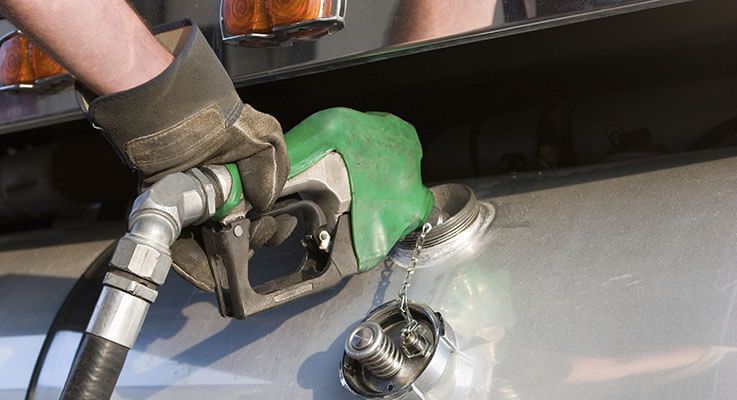Blog

Buying a Semi Truck: The Trucker's Essential Guide
General
Buying A Semi Truck
Every small business venture deserves some educated decisions that will not only take care of its foreseen and unforeseen challenges but also ensure that its resources are effectively managed. When it comes to working as a truck owner-operator, one of the most important decisions you need to take when setting up your business is deciding if you are buying a semi truck or not. Nevertheless, if you have chosen to own a truck for hauling loads for your customers, you are faced with the dilemma of finding a way to buy a semi truck.
Whether you have loads of money saved from your trucker driver salary or you are going to visit a finance company or bank to get a loan, you must be certain of how you are going to finance buying an older truck. Like most people, if you are obtaining a loan to finance a semi truck, you will be required to repay a specific amount of money every month for 3 to 5 years. Generally, once you have paid off the interest and principal amounts, you are the new owner of the truck.
What You Should Know about Payments for Semi Trucks
When it comes to financing a commercial truck, there are two types of payments that people are often concerned about, and these are:
- Payment amounts
Repayment amounts refer to the price that the person will be paying, usually on a monthly basis. People are typically bothered about how much they will have to pay over a period before paying off the loan that has been obtained. In most cases, monthly payments depend on the amount of loan obtained and the duration of the loan. - Down payment
When buying a semi truck, another essential thing that should be understood is the amount of the down payment. The down payment is the initial upfront payment made when you buy a semi truck on credit. The down payment varies based on various factors such as credit scores.
Financing a Semi Truck through a Loan
Simply put, a loan is an amount of money that an individual or other entity takes from a bank or any other finance company with an agreement to repay it at a stipulated time. Provided that you can fulfill the loan terms of a bank or any financial institution, you can quickly obtain a loan to buy a semi truck. Although you will be required to repay parts of your loan every month, the semi-truck will be entirely your own once you have repaid the full loan.
In most cases, there is no need for a down payment as the loan will take care of buying a used semi truck for you with the expectation of a monthly repayment as you continue to use the truck. Nevertheless, if you can include a down payment in the deal, your monthly repayment will be significantly reduced. Also, getting a loan to buy a truck will reduce the insurance costs; hence, you can get more money to repay your loans and own the truck outright.
One of the few downsides of obtaining a loan to buy a semi truck is that all forms of maintenance and servicing of the truck are your responsibility, and this will have a significant impact on the overall cost of running the truck. If you are having any problems with obtaining loans to buy a semi truck, you can also choose to lease. When you lease a semi truck, your monthly payment covers maintenance and service; thus, the leasing company is responsible for repairs, maintenance, and servicing of the truck.
Can Your Credit Score Affect Buying a Semi Truck?
If you are going to finance your semi truck through a loan from a bank or other financial institutions, it is very likely that the institution will consider your credit score. To some financial institutions, bad credit is enough to disqualify you from getting a loan to finance your semi truck. However, for other institutions, you may qualify for loans despite having bad credit, but your down payment will be distinctively higher than that of someone with a good credit score. If you have a bad credit score, you may be required to get a down payment of more than 10% of the total cost of the semi truck, and this may be too much considering how costly semi trucks are.
If you have a bad credit score as well as an insufficient down payment, you can use collateral when obtaining a loan to finance a truck. In a nutshell, your credit score, down payment and collateral will play pivotal roles in determining whether you will be able to obtain loans or a lease to get a semi truck.
What You Need to Do When Buying a Semi Truck
Here are a few things you should note when you want to buy a semi truck:
- Decide whether you are buying a used or new truck
Depending on your finances, you need to decide whether you are buying a used semi truck or a new one. Nowadays, the price of purchasing a newer truck is on the rise. Unless you are set financially, you should consider buying a used semi truck. However, there are specific issues associated with financing used trucks that you must understand to avoid certain pitfalls.
First, you should be confident of the work you will be using the truck for as this will play a pivotal role in determining whether buying it will be worthwhile or not. Different trucks are designed for various purposes, and unless the truck you want to buy suits that purpose, your efforts may be wasted.
The second thing you should consider is how reliable and well-maintained the truck is. In this regard, here are a few things you need to look at when financing a used truck:
- The maintenance records of the truck – changing of oil, mechanical maintenance, etc
- Tire tread depth to know if you will be buying new tires or not
- Problems associated with the engine type
- The suspension, transmission, complete drive train, wiring and rear-ends of the truck
- Analysis of the engine oil and transmission oil
- Performance of the engine over time
With the perfect understanding of the things mentioned above, it will be easy for you decide whether the semi truck is dependable and durable enough for business or not. Also, these things will help you to understand how much will be needed to repair the truck if it requires maintenance.
- Choose your dealer wisely
Although you can choose to buy a used semi truck directly from a private individual rather than a truck dealer, you are at risk of getting a poorly maintained truck that may affect your trucking business in the long run. Several dealers are known for their honesty and a good reputation when it comes to selling a semi truck; therefore, getting a semi truck from such trustworthy dealers will be helpful to you. Furthermore, buying a truck from a reliable dealer also ensures that you get different forms of financing options. - Avoid throwaway trucks
Throw away trucks are trucks that are built to last for a short time. This type of vehicle usually comes with low or no resale value as they can only be used for a few years. Although most throwaway trucks come at relatively cheap costs, they lack the quality that can make your investment worthwhile. Therefore, it is essential for you to avoid these trucks by taking your time to research their manufacturers.
Also, you can learn more about the makes and models of the throwaway trucks available in the market. The bottom line is that you should do your homework before buying a semi truck from any sources. If there is anything shady about any deal, you should walk away to avoid issues that may arise later.
Conclusion
As clearly indicated above, it is not necessary for you to have thousands of dollars in your account before buying a semi truck as different methods can be explored to finance your truck and get started in the trucking industry. Nonetheless, whatever options you have decided to use to lease or buy a semi truck, diligently research about it and make wise decisions that will ensure the success of your trucking business.

Noel Ballon
Noel Ballon is a skilled personal finance writer passionate about helping people to succeed financially.
As a guest writer for CASH 1, Noel has shared his knowledge on a variety of financial issues, including budgeting, saving, investing, and retirement planning
Noel has a background in economics and finance with over five years of experience writing in the financial sector.
He works to simplify complicated financial ideas so that people from every area of society may understand them.
When Noel isn't writing, he likes keeping current on the latest financial sector changes and looking for fresh approaches to assisting people in choosing wise financial decisions.





